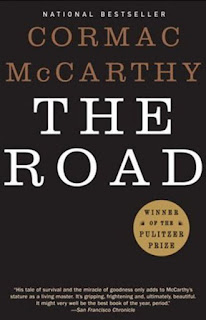 When The Mountain is "out", as Northwesterners also say on clear sunny days when it's visible, this is what it looks like from my neighborhood in Seattle (photo credit: a University of Washington site):
When The Mountain is "out", as Northwesterners also say on clear sunny days when it's visible, this is what it looks like from my neighborhood in Seattle (photo credit: a University of Washington site):Rainier is a regional icon (it's on the state's license plate). It's also a dormant stratovolcano, considered one of the most dangerous in the world.
But it's such a beautiful and awe-inspiring volcano!This is what it looks like from one of the trails near the Mount Rainier National Park Visitors Center:

I love, love, love mountain meadows! The wildflowers are so amazing.This is what it looks like when you get a little further from the tourist center:
(There was a mama deer! With her two fawns! How much more picturesque could it get? Photo credits for the rest of this post: me)
It's still a hefty hike, even on the paved pathways.
I finally saw a marmot in the wild!This is what The Mountain looks like when you reach Muir Snowfield:
(Do NOT google anything like "deaths Rainier Muir snowfield" in the days before you set out to hike it. Otherwise you might be tempted to run out and buy a ton of emergency equipment at REI. *cough* )This is how steep the slope is:
Muir Snowfield is 2.2 miles long and has an elevation gain of 2800 feet.
It was brutal. I was worried about altitude and dehydration, so I stopped often. (Also, I huffed and puffed nonstop.)
But the view was amazing!
The Tatoosh Mountains, which I've only ever seen in winter, were beautiful. Beyond them, both Mt. Adams and Mt. St. Helens were visible - it's as if three tall mountains in the Cascade range get to say "Hello!" to each other every sunny day.And this is what Mt. Rainier looks like at the almost-top!
10,188 feet is the highest I've ever been (not counting airplanes, obviously).We made it to Camp Muir! I'm so proud of myself and my two friends - we weren't sure if we could make it, but we did!
4600 feet in elevation gain is the most I've ever hiked.
Personal records FTW!
Then we glissaded down the snowfield. So amazingly fun!









